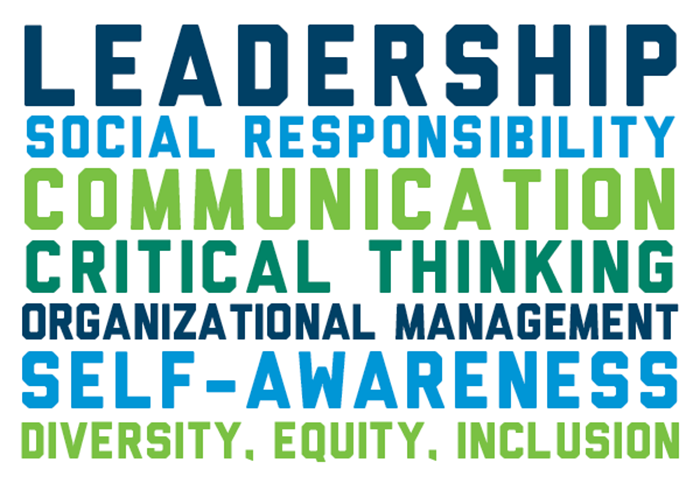|
A couple of years ago, I was in New York City for work. I had taught on a Saturday and I would be teaching again on the following Monday, so I had a rare and beautiful Sunday without work in one of my favorite cities in the country. I took the subway way up to the top of Central Park and then walked and ran back towards my hotel. As I neared my hotel, I stopped at a Japanese restaurant to get a Bento box. I decided to eat there instead of taking it back to my hotel to eat alone. Big mistake. At least I see that, now. I had no idea, then. When my food came, I realized I only had chopsticks, and although I have had lessons on how to use them, let's just say those lessons never "stuck". So, I did the unimaginable. I quietly motioned the server over and asked if I could get a fork. Suddenly, with no warning at all, she yelled (I exaggerate sometimes, but I promise you I am not, in this case) across the restaurant, "She wants a fork!" If I could have crawled under the table, I assure you I would have done so immediately. Instead, in an instant, all heads in the restaurant whipped their heads toward the culprit (not the server----ME!) as if they were pitying me and shaming me at the same time. Nowhere to turn, I had no choice to eat in shamed peace. I wanted to say, "Could you not have kept that little need of mine a secret?" Do you have colleagues at your school or other business that you know for certain you would never share any intimate details of your personal or work life? I'm guessing, for most all of us, the answer to that question is a resounding "yes". After all, trusting relationships are very difficult to come by. Just yesterday, I was talking in a group chat with about eight of my dearest friends from college. I can say, beyond a shadow of a doubt, that I would tell any one of them ANYthing and know it wouldn't go any further if I didn't want it to. Contrast that with teachers (in my courses I teach or from my own experience working with school districts around the globe) who say, "Don't say anything you want kept a secret in front of ________ because it will become front page news as soon as you do." Worse yet, sometimes teachers say it is their school leader who is the culprit of sharing personal information with others. Why do people do this? I believe, most of the time, the spouting of information may actually come from a good place. Imagine the scenario in which a colleague tells you in confidence that they had a biopsy done and they were awaiting the results. You decide to share with your department under the guise of "We should be praying for her" or "I'm sure she wouldn't mind the rest of you knowing so you can send good thoughts her way". However, unwittingly perhaps, we have betrayed that colleague's confidence by sharing confidential information with people that would not be privy to that information were it not for us spilling the proverbial beans. Another reason I suspect people tell secrets is to be "that person" who always has the "latest data" first. They like to be in the know, so people will think more highly of them. Without meaning to do so, however, they are actually doing the polar opposite; they will be trusted less and less. After all, if that person shares secrets with you about others, what do you think they are doing if you share personal information with them? I have friends here in Tucson whom I call "closed-mouth friends". I trust them with my sometimes inner-most thoughts that might not be popular to share in public. And I trust with my heart and soul that they will not take my information elsewhere. I have yet to be burned, so I think I have chosen them wisely. My spiritual advisor once told me to "stick with the winners", and I believe that are simply the winners---people I can trust with the important but private feelings I have that I don't necessarily want shouted across the Japanese restaurant just south of Central Park. I read a Portuguese proverb that said, "Tell your friend a lie. If he keeps it a secret, tell him the truth." I'm not quite sure how I feel about this seemingly shady practice, but I know for certain I am cautious with whom I share my private affairs. Yes, I need a fork --- you are all aware now---- but it's because I chose to tell you. Happy Communicating, Shelly
0 Comments
 Dave and I are on a 10-day vacation, so I am NOT going to gripe. Truth be told, I would be hard-pressed to gripe when I am sitting on our patio at our resort on Maui, watching waves crash and choosing to stare at monk seals, sea turtles or the beautiful mountain-island of Lanai. It is, however, easy to armchair quarterback what happens in organizations about which you know nothing about except being a consumer...or in this next case, a traveler. While Dave checked meticulously to ensure our credit cards allowed for us to each check a complimentary bag (one of which is filled with my clothes, and one is filled with...oh never mind, most of you know Dave already. You know it's his golf clubs. Silly me), apparently the "fine print" (which now means a magnifying class is a must for the reading of said print) states that you must pay for the ticket with that credit card. "But how could we pay for the ticket with the credit card," Dave calmly asked at the ticket counter, "when we used miles to 'pay' for our tickets?". "Sorry!" was the answer we got, to which I always am tempted to say, "Are you REALLY sorry? I'm guessing not." No matter. We asked to talk to a supervisor, who said, "Oh no, we can waive the baggage fee as long as you booked the $5 service fee for the ticket with this credit c.... oh, no, I see you did not. I'm sorry." Wait, what? We were supposed to pay a $5 fee with this very credit card to get the free bag? Dave, who makes me laugh anyway, suggested they charge our credit card $5 presently, and then Voila! the fee should be able to be waived. Nope. A big fat NOPE! But we did get a "Sorry!" No matter. We are on vacation, after all. Paying baggage fees for his precious golf cargo and my two or three or 8 pairs of shoes will not dampen our spirits. No, that didn't happen until we island-hopped from Oahu to Maui and found the line to simply get on the shuttle bus to get to the rental car facility was longer than a line would be at an Apple store when a new iteration of i-phone comes out. That is when, instead of getting frustrated (after all, we really ARE on vacation), we began coming up with ways to improve the logistics of the airport and the rental car organization. "You know, if they cut out a u-shape here, they could allow the rental car bus to pull around instead of having to back up, which is NOT efficient." "They should have a roped off area, so people know where the line starts" "Wouldn't it be easier to have all rental car properties on-site?" Again, lots of armchair quarterbacking going on, realizing that we are on the islands during lots of peoples' spring breaks. I am currently teaching several courses in Educational Leadership for Grand Canyon University. One of them is a course in preparing students for the real world of school leadership. In our textbook, Capasso and Daresh (2001, p. 6) say, "...leaders must be individuals who define their role through the eyes of their followers". I couldn't help but think of the parallel universe going on in my own world this week---one of professor and one of consumer. The first is teaching master's level students about how to effectively help schools run as a well-oiled machine; understanding the importance of building of relationships; recognizing that people who complain are often just tired and want their questions answered; and agreeing that all stakeholders are so integral to the process. The same goes for any organization, whether it is the airline with whom you are flying (or with whom you might be frustrated by a seemingly empty-sounding "sorry!") or the car rental company from whom you are trying to rent a vehicle that will fit all your luggage you are trying to cram into it. Our textbook for this course asks the students (and I'm doing it, too) to think about the characteristics that embody an effective leader---is it someone who is good with organizational skills, a real relationship-builder, a motivational speaker, a leader who reads and can relay pertinent research studies that help constituents understand the what, why, and how some particular strategies work better than others, or is it something that is more elusive? Something you can't quite put your finger on or name, but you know it when you see it? Just for today, I pray that you have experiences with people, leaders, and organizations that exude that effectiveness. And, if you don't, "Sorry!" :) Happy Communicating, Shelly Capasso, Ronald L., and John C. Daresh. 2001. The School Administrator Internship Handbook Leading, Mentoring, and Participating in the Internship Program. Thousand Oaks, CA: Corwin Press. Most everyone who knows me, professionally and personally, is well aware of my mantra, "It's not what you say but how you say it". I have recently experienced a number of times in which this mantra came to mind.
First of all, just last night, Dave and I were at a local restaurant. Dave asked for one type of beverage. The server said, "We don't have that one." Dave asked for another type. The server said, "Sorry, we don't have that one, either." Dave finally just said, "So, maybe it would be easier to ask what you DO have?" Of course, my jovial husband smiled as he said it, but the point was clear. Please don't just tell me "no", over and over again or what you can't do for me. Tell me what you can do for me. In my work as an educational consultant working with schools and districts all over the world, I find this to be an incredibly helpful work ethic. Instead of telling districts what I cannot do for them, I want to reassure them in every way possible that I can help them with their educator and administrator effectiveness. A big part of that is building a relationship with them. I have schools and districts in which I can honestly say I love and adore the clients (that word "clients" even sounds way too sterile for how I feel about them). But it has taken work on both our parts from the very beginning, starting with emails and phone calls that are timely, respectful, and friendly. I start out trying to get to know the contact person and the district in which I will be working as soon as I can so we can talk freely and not rigidly. The more that happens, the more I believe I can help. In a non-work related situation this week, I experienced something that broke my heart. Someone who was not technically a member of an organization was told they needed to leave. The person asked to leave did and was likely quite mortified because they didn't know the "rules" they were breaking. I began thinking about my preferred airline's lounge. In traveling quite a bit, I have come to rely on and be eternally grateful for the membership to the lounge in which I can take refuge during a layover between flights. Every once in a while, as I am entering the club, someone in front of me thinks they can come in without a membership. I have always watched the agents handle this with professional and courtesy, and even offer to allow the person to become a member for a day if they pay a fee. Yes, sometimes, the customers get frustrated because they thought they had access when they really didn't, but the agents are always gentle (even when you know they want to say, "How many times do I have to tell you that you have to BUY a membership???!"). The scenario I witnessed this week was not gentle, and it got me thinking about communication, again. What if someone comes into a Costco when they aren't a member? What happens if someone enters a meeting where they aren't a voting member? Most of the time, it simply takes someone quietly walking over to the person and letting them know the "rules" or the rites of passage, or whatever the case may be. How those words are delivered, however, could honestly make the difference between someone ever trying to come back again or not. And it could honestly have an effect on the reputation of the club, store, business, company, etc. My niece told me that she notices that I think before I speak (most of the time). She said she thinks it shows that I really want to think about how my words are going to impact others. I really appreciated hearing that, and I think that Dave started to argue with her but I shot him a "communicative" glance. :) I truly believe communicating can make the difference between people getting their feelings hurt or not; between people coming back to a restaurant or not; people staying married or not; and so many other instances, some more drastic than others. Just for today, perhaps we can think before we speak and realize that our words really do matter---to us and to others around us. Happy Communicating! Shelly  When I was in college, I was in three choirs at the same time. Nuts, right? I know! And that was on top of 18 other credits I was taking, so I was actually taking 21 credits at one time, plus working part time in the Education Department, plus having way too much fun simply being a college student. I mention the choirs because I just missed the opportunity to join the alumni of the choirs at my alma mater, Trinity University a couple of weeks ago. Even though I missed the event, I have been reflecting on my time in those choirs (mostly the 16-voice chamber choir that I adored so much). One of my funniest memories of our director, Dr. Chamberlain (and there were many with him, as he had a pretty wicked sense of humor), was when one of us in the alto section said to him, "I think we are singing that note wrong in measure ____". In a deadpan voice, he remarked, "Well, don't do that anymore". Obviously, what we were looking for is for him (or the accompanist) to play the correct note. As I said, he was funny and we all loved him. But I was thinking about how educational leaders often do this type of evaluation to teachers. What do I mean by that? We go into a classroom, we watch a teacher teach for a few minutes, and then we give them what one of the directors in one of my favorite districts in which I work calls "an autopsy report". In other words, we simply tell the teacher what they did wrong or tell them what should have happened instead. You might be thinking, "Well, the latter is the right way to handle a teacher evaluation, right? What's wrong with telling the teacher what they should do differently?" I have been blessed to work with Charlotte Danielson and her Framework for Teaching as a Framework Specialist for the past 6 1/2 years. Prior to that, I was just as blessed to be the school leader at the best elementary school in the world, Edge Elementary School in Niceville, Florida (no, I'm not joking, and yes, it really is nice---let's just get that out of the way). We used the Danielson Framework to "evaluate" teachers, and I regret having ever had to use that word. Yes, I get it. Accountability is present and important in any line of work, and teaching is no exception. But what is so critical and different about the Danielson Framework is the focus not on evaluation but on teacher growth. I will be the first to admit that we (present company TOTALLY included) didn't get this all right when we first began, despite having some amazing training from a senior member of the Danielson Group. We school leaders would go into classrooms, watch a lesson and collect evidence, give that evidence to the teachers, and the teachers and administrators would both analyze the data against the rubrics on the Framework. Then, we would come together to have a "conversation" about the teaching that we had experienced (both from the teacher's perspective and from the observer's perspective). Yes, I meant to put the word "conversation" in quotation marks. Why? Because, despite the fact that the teacher and the school leader had both done some analysis of the teaching, the administrator typically still did the bulk of the talking, making it something the teacher simply had to endure, as Charlotte Danielson often says, before the school leader quit talking and the "ratings" were done and paperwork was signed. I conducted my dissertation on teacher trust in school leaders, and many teachers said things like: I want to know how I'm doing in my own teaching, but I want the process to be fair and accurate. I can promise you that the process I described is not what Charlotte had in mind. In fact, I know firsthand that she believes (and I do, too) that the conversation is actually the most critical piece of this teacher observation cycle. Allowing the teacher, who is the one who is in his/her own classroom all the time, to do the majority of the thinking and talking allows them to process what happened, how that compares to what typically happens, what patterns they notice in their teaching, and what might be causal factors that contribute to certain results in the classroom. But, in order for the teacher to be able to do that heavy lifting, the school leader has to ask provocative questions and then BE.QUIET. Boy, was that my problem, or what??? Edge teachers, go ahead and agree. I have learned such monumental things about how to coach teachers in the past few years, thanks in no small part to Charlotte Danielson (2016), Laura Lipton and Bruce Wellman (2013), but also to the vast number of school leaders and teachers with whom I've been honored to work over the last several years. The more I've had a chance to model reflection conferences for school administrators who are learning how to talk less and listen more, the more confident I feel in my ability to coach not only teachers but administrators, as well. Most of what I have learned boils down to this: there is a wealth of knowledge floating around out there on great strategies to use to improve classroom management, rigorous engagement of learning, discussion techniques, assessment skills and much more. But all of those strategies and techniques would be for naught were it not for the ability of the principal to ask the right type of questions that get the teacher to do the lion's share of the thinking. Most recently, I have heard teachers say, "I have never gotten the chance to talk this much about what goes on in my own classroom" as well as "Ummm...I didn't know I was going to have to answer any questions---I thought you were just going to tell me what you saw me do". The latter is fairly typical, I think, until we all get used to the process being one in which teachers expect they will be doing some heavy lifting in the reflection conference and that they will take away some new ideas that the principal and teacher work on together. One of the best quotes I've heard a school leader say recently is, "I used to think I was supposed to tell the teacher about what I saw them do in the classroom. Now I realize that, by allowing the teacher to do some self-reflection, they are leaving the conversations happier and better-equipped than ever before!" And isn't that really the point? Dr. Chamberlain, I know you were joking with us about not singing the wrong note anymore. But we, as school leaders, simply cannot do that to teachers. We must give them the chance to think about their teacher, try on some new strategies, practice those strategies with some coaching, and to assess the effectiveness of them. Let's work on coaching versus evaluating, and see what a difference it makes to teachers and administrators alike. Happy Communicating! Shelly Arneson, S. (2012). Character and competence: A mixed methods study on teacher trust in principals in a mid-sized county in Florida (Doctoral dissertation). University of West Florida. Arneson, S. (2014). Building trust in teacher evaluations: It’s not what you say; it’s how you say it. Thousand Oaks, CA: Corwin. Arneson, S. (2015). Improving Teaching, One Conversation at a Time. Educational Leadership, 72(7), pp. 32-36. Danielson, C. (2016). Talk about teaching. Thousand Oaks, CA: Corwin. Lipton, L., & Wellman, B. (2013). Learning-focused supervision. Arlington, MA: MiraVia. |
Shelly ArnesonCategories |




 RSS Feed
RSS Feed